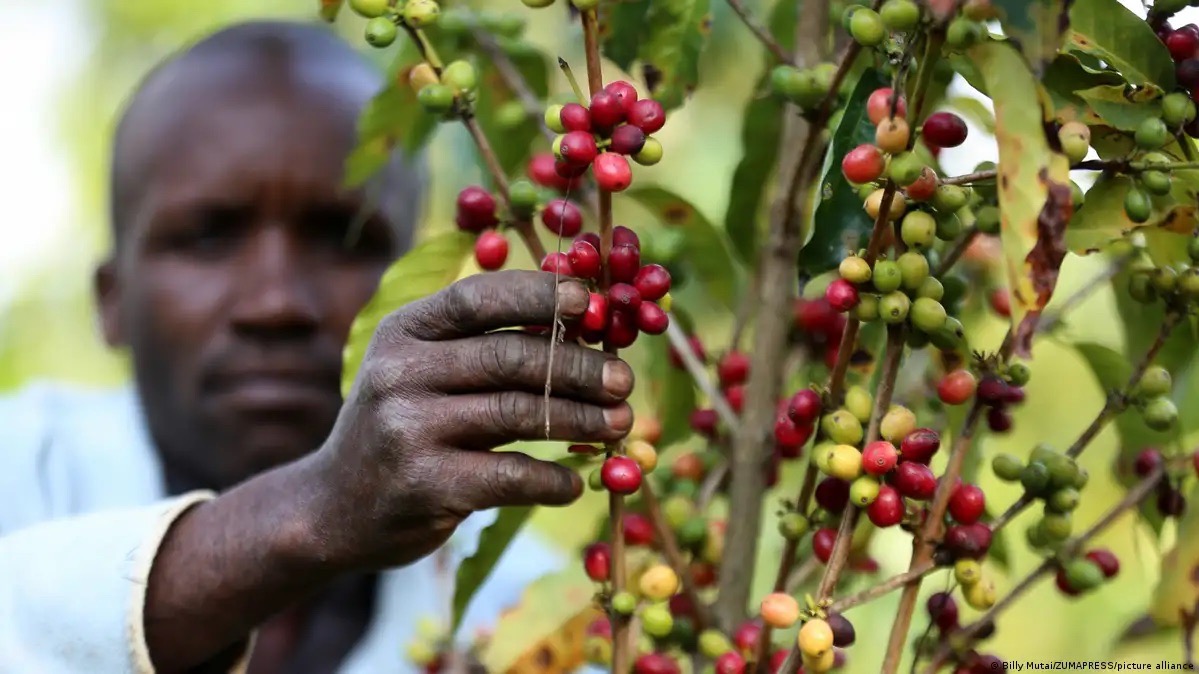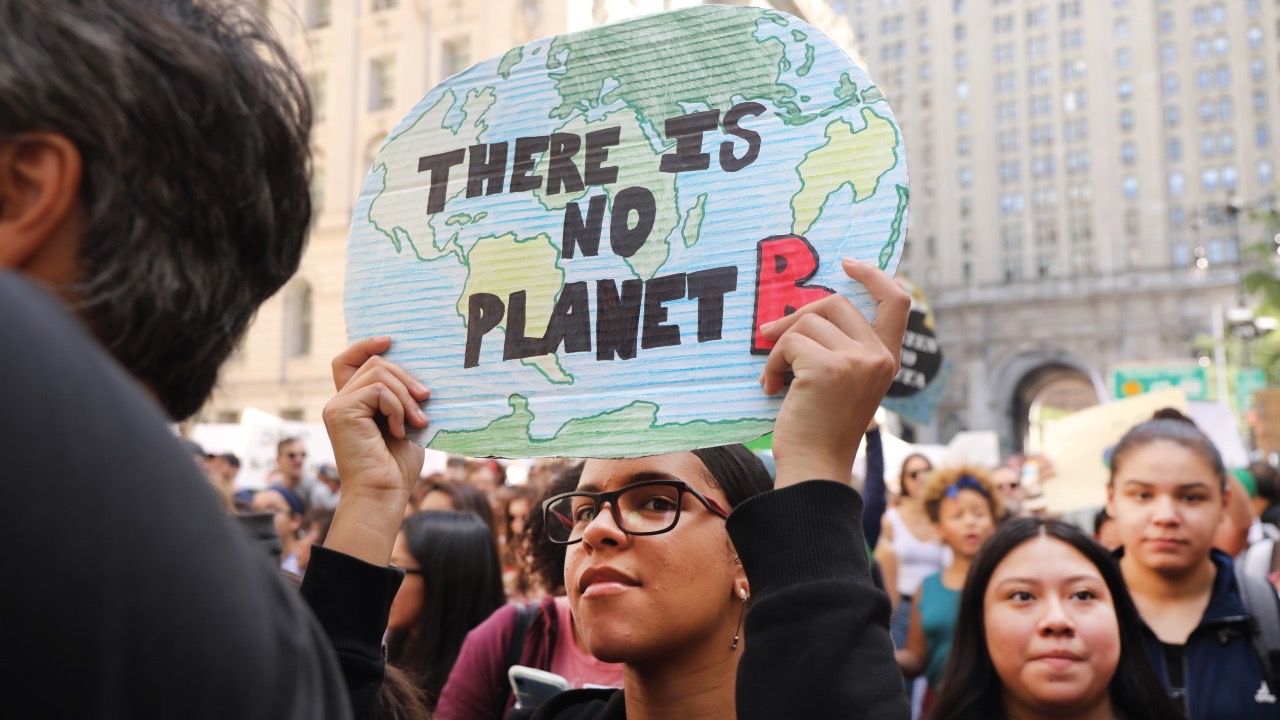Content warning: This song contains mild explicit language.

Single cover for American band Lake Street Dive’s 2020 song “Making Do” (from Genius, 2020).
- “Making Do” (image above) was released in 2020 by American band Lake Street Dive. This pop-rock song was released as a single from the group’s 2021 album Obviously. Lake Street Drive is made up of five classically trained musicians who are known for their genre-transcending and politically progressive music.
- The song was primarily written by the drummer of Lake Street Drive, Mike Calabrese. He is a devoted environmentalist who educated his bandmates and their followers about the climate crisis. Calabrese has also made efforts to reduce the environmental impact of the band’s tours by partnering with Cool Effect, a global non-profit devoted to mitigating the effects of anthropogenic climate change, to offset their carbon emissions.
- Lake Street Dive produced “Making Do” with the intent of normalizing music and conversations about climate change. In an interview with representatives of the Environmental Defense Fund (EDF), Calabrese said that he hopes “Making Do” gives listeners a broader perspective on the climate crisis through his band’s art.
- You can listen to the song here and read the lyrics here.
How is this related to climate?
- In the song’s introduction, lead singer Rachael Price sings, “You’re working harder than ever now and the coffee sucks. You know Colombia and Kenya got too damn hot, and now you’re making do with what you’ve got.” This line specifically refers to the effects of anthropogenic climate change on coffee production in South America and Africa, respectively:
- In Colombia, rising temperatures are limiting the range of land where coffee can grow. Average yields have dropped at lower altitudes, where it is hotter. Farms at higher altitudes, on the other hand, are seeing increased yields. This is problematic because there is not as much pre-existing infrastructure in the mountains, and if temperatures continue to rise, eventually Colombia will run out of land cool enough to support coffee.
- In Kenya, coffee production rates have dropped between the 1990s and late 2010s. Higher average temperatures along with inconsistent precipitation have created drought conditions that are threatening coffee crops (image below) and making coffee plants more vulnerable to pests. Climate change is also endangering coffee production in other parts of Africa. A 2020 publication by the World Resources Institute predicts that unchecked climate change will result in half of coffee’s agricultural land disappearing by 2050.

Image of an African coffee farmer inspecting his crop (from Deutsche Welle, 2020).
- In the first verse, Price sings, “Killer waves and riots, coming to the coastline soon, counting up the new typhoons.” Rising global temperatures have brought on increased coastal flooding as melting polar ice caps cause sea levels to rise. This is especially problematic for small, flat Pacific islands that are vulnerable to coastal inundation. In addition, climatologists agree that as a result of anthropogenic climate change, large storm systems, including hurricanes, typhoons, and tropical cyclones, exhibit stronger winds and more rain. Severe storms are also becoming increasingly dangerous as they are becoming more unpredictable, traveling slower, and reaching higher latitudes.

Photograph of young protesters at a march against climate change in New York City, U.S. in 2019 (from Pew Research Center, 2021).
- The song ends with the line, “To the next generation, merry Christmas. You’re working harder than ever now.” Here, Lake Street Dive speaks to the responsibility thrust upon younger generations to survive and adapt to the effects of anthropogenic climate change (image above). Growing up experiencing some of the effects of global warming, younger people are more likely to support climate-mitigation and adaptation policies. According to the Pew Research Center, a larger proportion of young Americans, compared to older generations, view climate change as a political priority.
- Many young people have also taken dedicated action and become major climate activists. For example, Xiuhtezcatl “X” Martinez is an advocate for indigenous rights who has raised awareness of climate injustice and taken political action against the fossil fuel industry. Additionally, Indian activist Licypriya Kangujam, the founder of the climate campaign, “The Child Movement” has spoken about the effects of climate change on youth at the UN Climate Change Conference in 2019.
References and additional resources
- “Cool Effect: About Us.” Cool Effect. 2023. https://www.cooleffect.org/about-us.
- Fröhlich, S. “How climate change threatens African coffee farmers.” Deutsche Welle. November 2020. https://www.dw.com/en/how-climate-change-threatens-african-coffee-farmers/a-55648060.
- Lai, O. “10 Young Climate Activists Leading the Way on Global Climate Action.” Earth.org. August 2022. https://earth.org/young-climate-activists-leading-the-way-on-global-climate-action/.
- Lake Street Dive. “Lake Street Dive – Making Do [Official Music Video].” Youtube. September 2020. https://www.youtube.com/watch?v=bs4dR4YjGPg.
- “Lake Street Dive on music, activism, and bravery.” Environmental Defense Fund. 2021. https://www.edf.org/degrees/lake-street-dive-music-activism-and-bravery.
- “Making Do.” Genius. September 2020. https://genius.com/Lake-street-dive-making-do-lyrics.
- Tyson, A. Kennedy, B. and Funk, C. “Gen Z, Millennials Stand Out for Climate Change Activism, Social Media Engagement With Issue.” Pew Research Center. May 2021. https://www.pewresearch.org/science/2021/05/26/gen-z-millennials-stand-out-for-climate-change-activism-social-media-engagement-with-issue/.
- University of Illinois College of Agricultural, Consumer and Environmental Sciences. “How climate change affects Colombia’s coffee production.” Science Daily. April 2021. https://www.sciencedaily.com/releases/2021/04/210405175607.htm.
- Willman, C. “Taking a Deep Dive Into Lake Street Dive: Band Members Explore the Not-So-Obvious Sounds of ‘Obviously.’” Variety Magazine. March 2021. https://variety.com/2021/music/news/lake-street-dive-obviously-album-interview-1234930088/.
